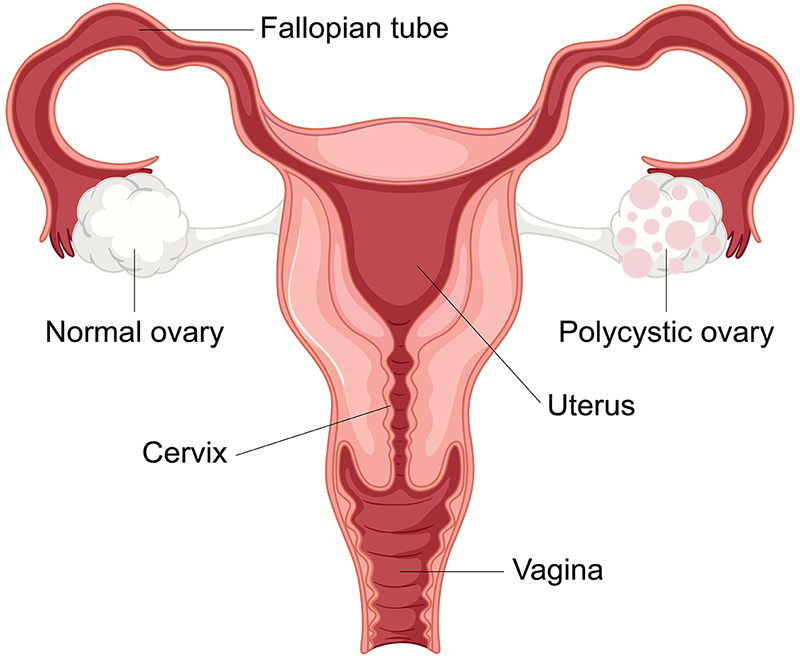
PCOD (Polycystic Ovarian Disease), is a common hormonal disorder among women of reproductive age.
Causes of PCOS:
Hormonal Imbalance:
PCOS is characterized by an imbalance in sex hormones, specifically elevated levels of androgens (male hormones) like testosterone.
Insulin Resistance:

